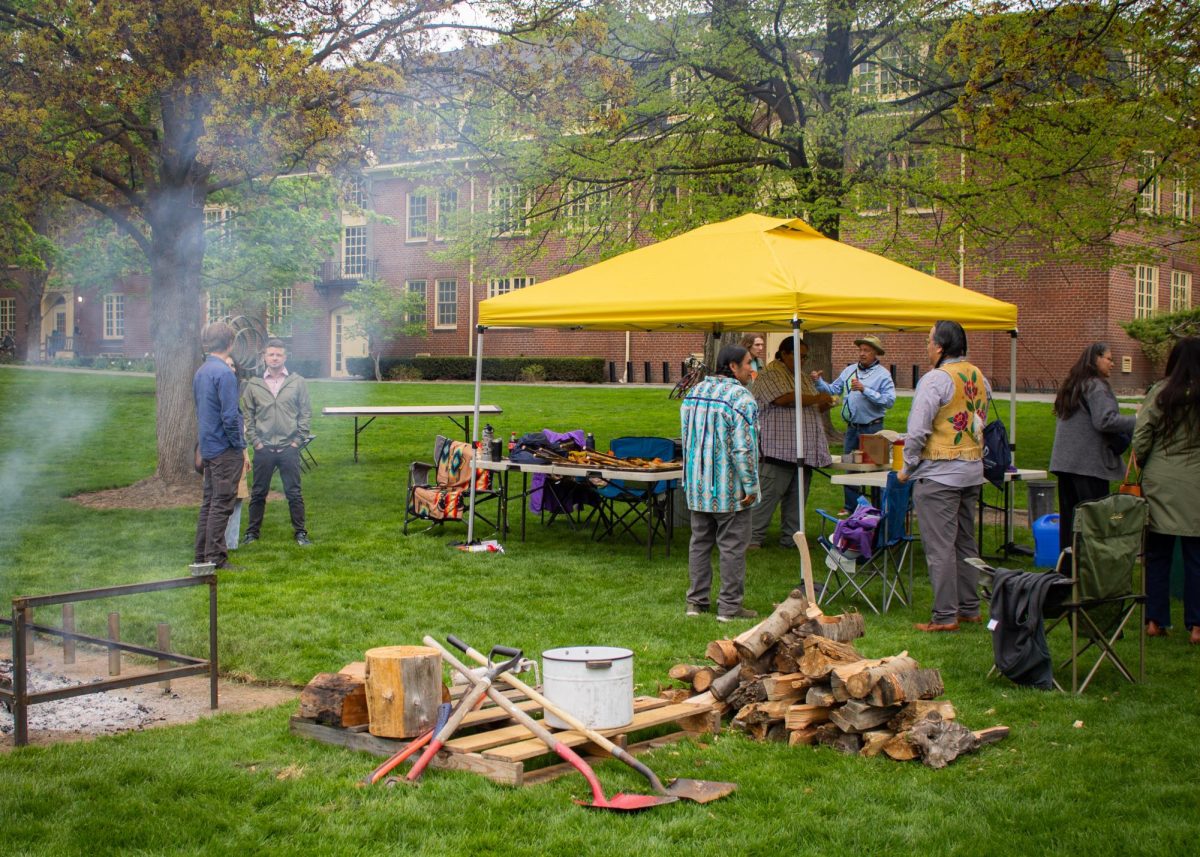The conservative-allied Charles Koch Foundation and Whitman College would not normally seem an ideal pair. However, when the foundation funded a recent lecture series, this unlikely pair was brought together, resulting in mixed opinions from the Whitman community.
The Classical Liberalism Lecture Series, held on Thursday, Oct. 27, was originally funded by a private donor with the intent of bringing more conservative ideas to campus, especially in the fields of economics, politics and environmental studies. Last year Whitman’s Development Department applied for and received a grant from the Koch Foundation, using it to fund the visit of the most recent speaker in the series, Gary Liebcap, who gave a lecture entitled “The Tragedy of the Commons.”
The Charles Koch foundation is one of several organizations founded by brothers Charles and David Koch, billionaire co-owners of Koch Industries who have become well known in the political sphere for their financial support of conservative and libertarian initiatives.
Director of Development Rachna Sinnott explained that funding for academic programs like the lecture series is procured on a case-by-case basis.
“What we look for are funding sources whose interests match the projects that we want to do. This foundation was brought to my attention because their funding interests aligned with the type of project that this classical liberalism series is,” Sinnott said.
Faculty involved in organizing the lecture series noted that there was some contention around the decision to accept Koch Foundation funding originally. They have since recommended to the Development office not to re-apply for a Koch grant.
“We’re all pretty comfortable accepting funds as long as there aren’t undesirable strings attached. When we accepted [the Koch grant], there were no undesirable strings attached,” said Associate Professor of Economics Jan Crouter.
Miles C. Moore Professor of Political Science Phil Brick agreed.
“The question is, when you take money from a foundation, to what extent are you endorsing that foundation and to what extent are you simply taking the money and doing what you want with it? The way we always see things here is that we want to take money from foundations and we want to do what we want to do,” he said.
Brick also noted that faculty made the decision not to re-apply for funding once they perceived the Koch foundation as overstepping its bounds.
“The foundations often want reporting on how we spent their money, but what really turned us off to [the Koch foundation] was that they started wanting all sorts of other things, like student emails. They want contacts so they can recruit conservative-minded students . . . To me that really crossed the line, and it’s unethical,” he said.
Senior Lecturer of Environmental Humanities Don Snow agreed that the problem in accepting the funds was not solely due to the Koch foundation’s political stance. He cautioned against oversimplifying the process of seeking out and accepting monetary donations.
“If a person uses political ideology as a litmus test to judge the worthiness of the donors, that person’s potentially going to get in a position of near-paralysis in terms of actually gaining funding from sources,” Snow said.
Snow added that the complications present in this case were relatively unusual.
“In the donor-donee relationship, what can get sticky is when with a donor you get something more than their money. You get a grant plus certain requirements. Sort of like money plus dessert, and usually it’s not a very good dessert,” he said.
Whitman students echoed similar sentiments. First-year Collin Smith became concerned about Koch funding when he attended Liebcap’s lecture, at the start of which the Koch foundation’s sponsorship of the event was briefly acknowledged.
“I was just surprised more than anything, when I heard their name, that they would even look at Whitman because I view Whitman as sort of a liberal place. I think most people do. I was surprised that we took money from the Kochs,” Smith said.
While he reported satisfaction with the lecture itself, Smith expressed ambivalence about the Koch Foundation’s involvement in higher education.
“I feel like, as much as I dislike the Kochs and what they do, if they give us money and we use it in a positive way and are not affected by the Koch interests, then I’m happy to take their money. But it does worry me: Why are the Kochs paying into this? Is there some sort of ulterior motive?” Smith said.
Other students who attended the lecture felt negatively about Whitman’s use of Koch Foundation money.
“My opinion would be that it’s really not all right and that the college should not be taking funding from an organization that is basically trying to coercively change people’s opinions in ways that benefit [the Kochs] . . . Their goal, it seems to me, is to organize society in a way that supports their business practices,” said first-year Brandon Hunzicker.
Hunzicker further expressed the belief that Whitman should not accept funding from an organization trying to disseminate a particular political viewpoint.
“I think that it’s money that should be refused almost as a statement.”









Sean • Nov 25, 2011 at 6:16 pm
Perpetuate the liberal Whitman orthodoxy!
Shirley • Nov 22, 2011 at 12:54 pm
I think it’s incredibly naive to believe that money from the Koch brother’s foundation would not come with strings attached.